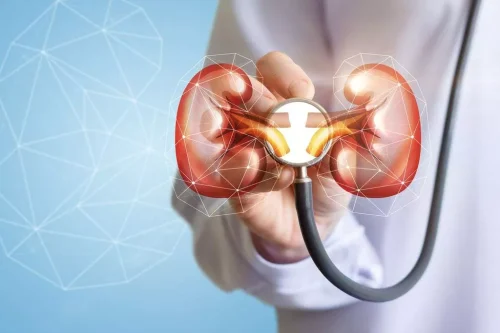
SMART Recovery, which stands for Self-Management and Recovery Training, is a secular organization that focuses on science-informed practices to help people recover. Groups are led by a trained facilitator and focus on evidence-based tools to help you get and stay sober. These groups all offer different approaches catered to a wide range of individuals who are looking to maintain their recovery.

Addiction Relapse Rates in the United States
The members of your support network are people who will remain committed to helping you remain focused on your recovery goals. Healthy boundaries prevent enablers from inadvertently undermining recovery efforts. They also encourage family and friends to engage in supportive roles, creating a safe and nurturing environment for recovery to flourish. Ultimately, clear communication builds trust and facilitates better relationships, enhancing the overall support network essential for maintaining sobriety. In addiction recovery, a sober support network is a lifeline that can make the difference between relapse and lasting sobriety.
How can I tell if someone is a positive addition to my support network?
- The-Recover can assist you in finding the right mentor or sponsor by connecting you with individuals who have experience in guiding others through the recovery process.
- At GateHouse Treatment, we are more than a therapy program; we are a community.
- Those who surround themselves with sobriety learn that substance use is frowned upon.
- By combining these elements, you lay the groundwork for a robust support network, significantly enhancing your chances of achieving and maintaining sobriety.
- This person can provide invaluable guidance, especially during difficult times.
- It is important to remember that not everyone you meet will be a good fit.
Additionally, making time for self-care activities that you enjoy is important for your overall happiness. Engaging in activities such as creating art, listening to music, or enjoying a good book can help you relax and recharge. Taking these breaks can help you feel more balanced and ready to tackle the challenges that come with work, school, family and life. Embracing these fun and relaxing experiences can boost your mood and improve your well-being.
How do you build a community in recovery?
Therefore, it’s important to understand your insurance coverage before beginning treatment. Rehab insurance is a type of health insurance that covers the sober network cost of addiction treatment, including inpatient and outpatient rehab programs, counseling sessions, and medication-assisted treatment. Most insurance providers offer some form of rehab insurance, either as part of their standard coverage or as an add-on policy.
Start the Admissions Process Online
- Helps get lives back on track from substance use and behavioral addiction.
- Educating them about the nuances of addiction and recovery enables them to become effective supporters.
- Maintaining these connections is integral to sustaining your well-being in the long run.
- The body may also eliminate substances through sweat, urine, and breath.
- For this reason, patients may be more inclined to shy away from investing effort into building a support network when they graduate from rehab and commit to remaining clean and sober.
This article will walk you through the steps of creating and cultivating a support network that can empower you to flourish in your sobriety. While you might understand the benefits of having a sober support group, finding one may seem overwhelming. Building a sober support network can open doors to new opportunities. You may discover new job opportunities, fun events, volunteer work, and more.

Group Therapy
Active involvement in these groups enhances motivation and accountability. Members are encouraged to commit to their sobriety, providing an informal system of checks to help prevent relapse. Furthermore, the capacity for positive peer pressure in these groups reinforces healthy choices in everyday life. By actively engaging in these steps, you not only lay the groundwork for a robust support network but also enhance your chances for a successful, long-term recovery.
What services does The-Recover offer to help build a sober network?

To build a sober network, connect with family, friends, and professionals who are supportive of your sobriety. Engage with Substance abuse groups or organizations dedicated to recovery, and participate in meetings or events where you can find like-minded individuals. A sober network is a lifeline that offers essential support to individuals braving the storm of addiction. Building a sober network involves rallying around like-minded friends, family, and mentors who can offer unwavering support. It’s not so different from understanding a 30 year fixed mortgage rate chart – both require patience, commitment, and a long-term vision.
Programs

You want someone who will take your calls when you are struggling, and who has a generally positive enough outlook to guide you through your periods of darkness. If you find that you admire a person’s attitude and approve of their general lifestyle, then you want them in your support network. In such cases, consider attending support group meetings or seeking out online https://ecosoberhouse.com/article/10-celebrities-who-died-because-of-alcoholism/ recovery communities. You can find people who understand and empathize with your situation. Actively offer support to others in your circle, encouraging reciprocity and strengthening a collective commitment to recovery. Engage in group activities or shared hobbies to promote camaraderie and maintain a positive, sober environment that benefits everyone’s efforts.
Engaging with sober peers reinforces the notion that recovery is achievable and sustainable. Having a variety of supportive individuals significantly reduces feelings of isolation and enhances motivation. When surrounded by others who understand the struggles of addiction, individuals are more likely to stay focused on their recovery goals. This mutual support assists in navigating the ups and downs of recovery, while shared experiences foster a deeper understanding of addiction as a disease rather than a personal failing.